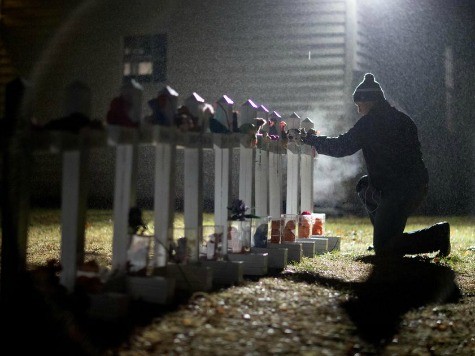
An editorial in the Hartford Courant last Wednesday states that Connecticut “lawmakers, the judiciary and law enforcement” are engaging in unusually heightened secrecy with regard to details of the tragic Sandy Hook shootings on Dec. 14 in Newtown, Connecticut.
The editorial argues that the public deserves to have questions answered about the horrific shooting, and the legislature needs the information as it is making policy decisions in reaction to the event.
Awful as the details are, secrecy is a mistake. It ignites public worry. It prevents ordinary people who might know critical details from becoming law enforcement allies. Worse, secrecy feeds into the whispers of those conspiracy theorists who believe that the police have something to hide. It plays into the motives of the complete lunatics who spread the slander that this slaughter somehow never happened.
The Courant goes on to describe a timeline of the “excessive secrecy.” Following the shooting, Danbury State’s Attorney Stephen J. Sedensky asked Superior Court Judge John Blawie to seal five warrant applications and affidavits in the Newtown case for 90 days, a request Blawie fulfilled.
The warrants pertained to a search of the home and car of Adam Lanza, the assumed shooter. Sedensky’s letter of request was reportedly based on his assertion that “the investigation… is still continuing and no arrests have been made and none are currently anticipated, but have not been ruled out.”
Citing that the suspect in this case is dead, the Courant observes that, in January, some newspapers reasonably requested that the warrants be opened:
When a judge takes the drastic step of keeping information from the public, people deserve a reasoned explanation. Closing records by fiat is not merely high-handed. It erodes the public’s faith in the Judicial Branch.
According to the Courant, Blawie’s reason for sealing the warrants was that “the state’s interest in continuing nondisclosure substantially outweighs any right to public disclosure at this time.”
On February 22nd, the Courant also published an editorial in opposition to a decision by several Connecticut lawmakers to bring forward a bill making the death certificates of children under the age of 18 unavailable to the public.
The proposed legislation came when Newtown Town Clerk Debbie Aurelia told members of the Connecticut legislature that she had been inundated with requests for copies of death certificates of the school shooting victims. Aurelia said she was concerned that much of the information on the death certificates should not be released to the public because it could be used by identity thieves or by the media to contact family members.
“They want to know where the victims are buried and how they died,” Aurelia told members of the General Assembly’s Government Administration and Elections Committee. “This is an extreme invasion of privacy.”
Though Aurelia said she would be willing to release an abridged document that includes information such as name of deceased, gender, date and time of death, city of death, and manner of death, she would ultimately like to have all death certificates exempt from public disclosure without time limits.
According to the Courant, “When death certificates are hidden from public view, however, so are the wrongdoings that cause some of those deaths.”
The editorial goes on to say that death certificates have been used by the media to investigate fatalities at day care centers, infant deaths wrongly attributed to sudden infant death syndrome, and deaths at psychiatric facilities. In addition, the Courant points out that individuals have used death certificates to trace family lineage.
According to the Courant, “Restricting access now in the name of compassion may make public scrutiny impossible in the future.”

COMMENTS
Please let us know if you're having issues with commenting.